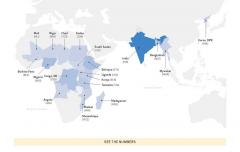Renewables: RISE Renewable Energy vs Business Environment
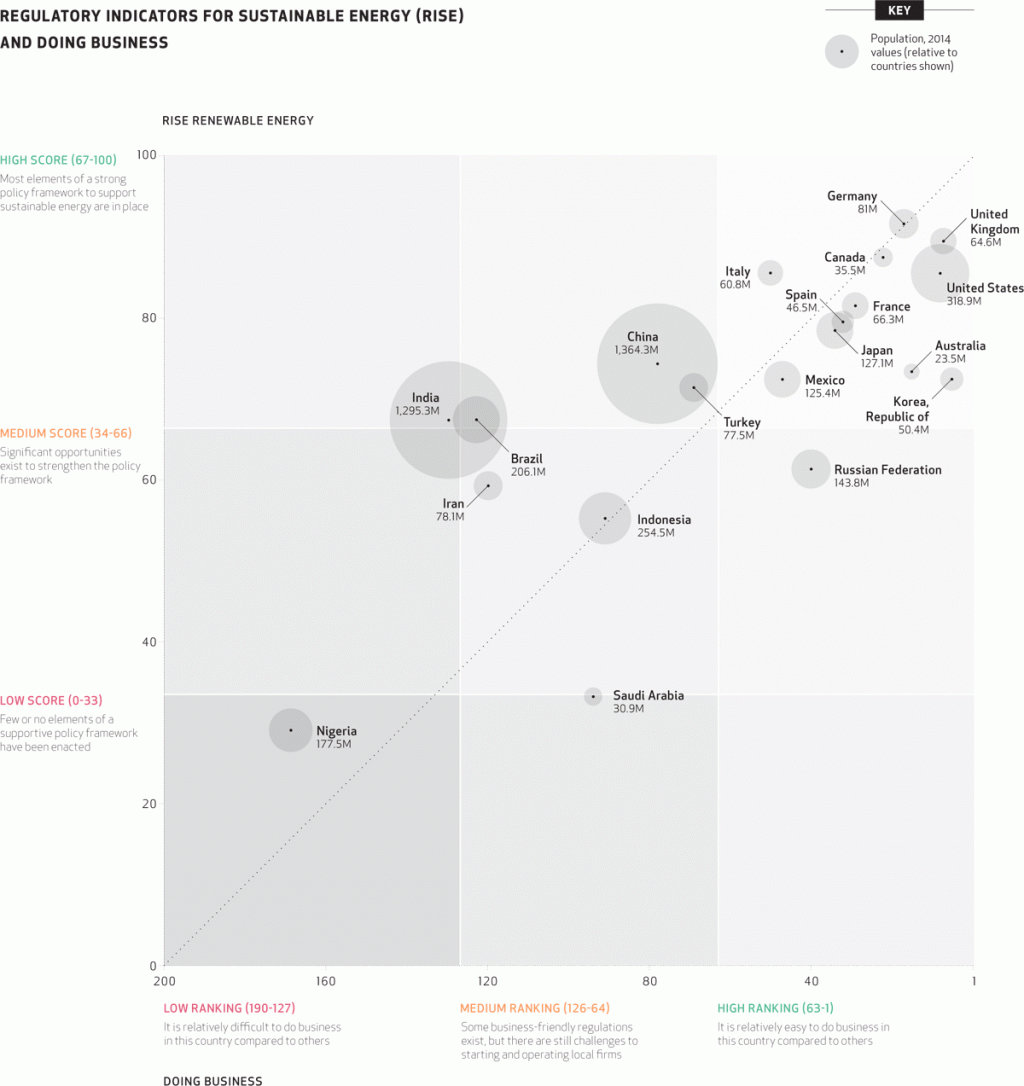
Quick Facts
Context
- RISE offers policymakers and investors detailed country- level insight on the policy and regulatory environment for sustainable energy across 111 countries globally.
- Doing Business measures aspects of regulation that enable or prevent private sector businesses from starting, operating and expanding. It ranks economies from 1-190 based on the regulatory environment by sorting aggregate scores on 10 topics and giving equal weight to each topic.
- Doing Business’ Getting Electricity indicator highlights the importance of a reliable power supply and transparent tariffs structures to support effective business activity and the deployment of renewable energy at scale.
- The high renewable energy penetration rates observed in high-impact countries such as Germany, the United Kingdom, Spain or Australia, generally result from a combination of favorable policy, regulatory and business environments.
- Doing Business’s Getting Electricity indicators shows that India, Indonesia and Kenya improved the administrative processes needed to get a connection to an electricity network while also reducing the cost of connection. Further effort is needed to mitigate the risks of payment delays or defaults, reduce delays for obtaining construction permits, and meet domestic renewable targets in a timely manner.
NOTES: 1. The dotted line represents approximately the Line of Control in Jammu and Kashmir by India and Pakistan. The final status of Jammu and Kashmir has not yet been agreed upon by the parties.
2. This map was produced by SEforALL. It is based on the UN Map of the World, which can be found here: http://www.un.org/Depts/Cartographic/map/profile/world.pdf. The boundaries, colors, denominations and any other information shown on this map do not imply, on the part of SEforALL, any judgment on the legal status of any territory or any endorsement or acceptance of such boundaries.
SOURCES: International Energy Agency (IEA) and the World Bank. 2017. “Progress Towards Sustainable Energy: Global Tracking Framework 2017” (April), World Bank, Washington, DC. Data extracted from http://gtf.esmap.org/ on 06/20/2017.DC.
Related Heatmaps
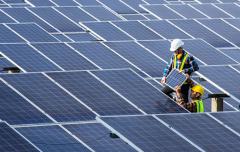
Data analysis
16 Oct 2024

Data analysis
15 Nov 2022

Data analysis
03 Jun 2022
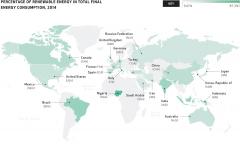
Data analysis
25 Jun 2017
Related content

Data analysis
16 Oct 2024
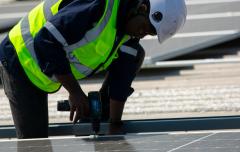
Webinar
25 Jun 2024
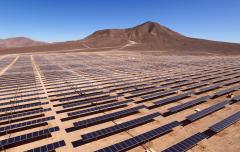
News
22 Apr 2024

Webinar
12 Mar 2024
